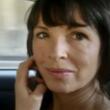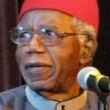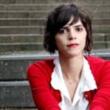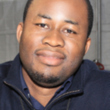Open city
Description
More Details
9780679604495
9780812980097
9780593215838
Excerpt
Similar Titles From NoveList
Similar Authors From NoveList
Published Reviews
Booklist Review
Nigerian immigrant Julius, a young graduate student studying psychiatry in New York City, has recently broken up with his girlfriend and spends most of his time dreamily walking around Manhattan. The majority of Open City centers on Julius' inner thoughts as he rambles throughout the city, painting scenes of both what occurs around him and past events that he can't help but dwell on. For reasons not altogether clear, Julius' walks turn into worldwide travel, and he flies first to Europe, where he has an unplanned one-night stand and makes some interesting friends, then to Nigeria, and finally back to New York City. Along the way, he meets many people and often has long discussions with them about philosophy and politics. Brought up in a military school, he seems to welcome these conversations. Upon returning to New York, he meets a young Nigerian woman who profoundly changes the way he sees himself. Readers who enjoy stream-of-consciousness narratives and fiction infused with politics will find this unique and pensive book a charming read.--Hunt, Julie Copyright 2010 Booklist
Publisher's Weekly Review
Possibly the only negative thing to say about Cole's intelligent and panoramic first novel is that it is a more generous account of the recent past than the era deserves. America's standing in the world is never far from the restless thoughts of psychiatry resident Julius, a Nigerian immigrant who wanders Manhattan, pondering everything from Goya and the novels of J.M. Coetzee to the bankruptcy of Tower Records and the rise of the bedbug epidemic. In other words, it is an ongoing reverie in the tradition of W.G. Sebald or Nicholson Baker, but with the welcome interruptions of the friends and strangers Julius meets as he wanders Penn Station, the Upper West Side, and Brussels during a short holiday, and amid discussions of Alexander Hamilton, black identity, and the far left-a truly American novel emerges. Julius pines over a recent ex, mourns the death of a friend, goes to movies, concerts, and museums, but above all he ruminates, and the picture of a mind that emerges in lieu of a plot is fascinating, as it is engaged with the world in a rare and refreshing way. (Feb.) (c) Copyright PWxyz, LLC. All rights reserved.
Library Journal Review
Cole's first novel, after the novella Every Day Is for the Thief, is getting a 25,000-copy first printing. Julius, the doctor protagonist, is a Nigerian immigrant in New York encountering people whose lives tell of earlier immigrant experiences. (c) Copyright 2010. Library Journals LLC, a wholly owned subsidiary of Media Source, Inc. No redistribution permitted.
Kirkus Book Review
A masterful command of narrative voice distinguishes a debut novel that requires patience and rewards it.Like the novelist, protagonist Julius is a Nigerian immigrant living in Manhattan. He works as a psychiatric resident, though there are long stretches of the story in which his profession barely factors. He has a former girlfriend, some medical colleagues, even a few friends, but none emerge as fully fleshed characters in a novel that consists mostly of Julius's restless wanderings throughout the city, where he withstands the crush of a very diverse populace while remaining very much alone. If Julius is the only character the reader really gets to know, even he seems disembodied, a stranger to himself. ("And this double of mine had, at that precise moment, begun to tussle with the same problem as its equally confused original. To be alive, it seemed to me, as I stood there in all kinds of sorrow, was to be both original and reflection, and to be dead was to be split off, to be reflection alone.") As Julius traverses boundaries of neighborhood, country, chronology and race, the reader begins to wonder about the perspective of a protagonist who seems so disaffected. Rather than establishing momentum, the circular, elliptical narrative focuses on the everyday, though in Manhattan this encompasses muggings, car crashes and passing encounters with various strangers. A climactic revelation toward the end casts fresh light on all that has preceded: "Each person must, on some level, take himself as the calibration point for normalcy, must assume that the room of his own mind is not, cannot be, entirely opaque to him," reflects Julius. "Perhaps this is what we mean by sanity: that, whatever our self-admitted eccentricities might be, we are not the villains of our own stories."Determining whether the novel's main character is hero, villain or somewhere in between might require the reader to start over with the book after finishing it.]] Copyright Kirkus Reviews, used with permission.
Booklist Reviews
Nigerian immigrant Julius, a young graduate student studying psychiatry in New York City, has recently broken up with his girlfriend and spends most of his time dreamily walking around Manhattan. The majority of Open City centers on Julius' inner thoughts as he rambles throughout the city, painting scenes of both what occurs around him and past events that he can't help but dwell on. For reasons not altogether clear, Julius' walks turn into worldwide travel, and he flies first to Europe, where he has an unplanned one-night stand and makes some interesting friends, then to Nigeria, and finally back to New York City. Along the way, he meets many people and often has long discussions with them about philosophy and politics. Brought up in a military school, he seems to welcome these conversations. Upon returning to New York, he meets a young Nigerian woman who profoundly changes the way he sees himself. Readers who enjoy stream-of-consciousness narratives and fiction infused with politics will find this unique and pensive book a charming read. Copyright 2010 Booklist Reviews.
Library Journal Reviews
Cole's first novel, after the novella Every Day Is for the Thief, is getting a 25,000-copy first printing. Julius, the doctor protagonist, is a Nigerian immigrant in New York encountering people whose lives tell of earlier immigrant experiences.
[Page 72]. (c) Copyright 2010. Library Journals LLC, a wholly owned subsidiary of Media Source, Inc. No redistribution permitted.Library Journal Reviews
One of the most intriguing novels you'll likely read, this debut by Nigerian-born Cole is constructed in what appears to be a traditional novel format but is riddled with ambiguity. By the end, there is so much disjuncture that readers will wonder whether the protagonist is the classic unreliable narrator. Julius, a half-Nigerian, half-German psychiatry intern living in New York, takes to walking about the city after breaking up with his girlfriend; his numerous encounters cause him to reflect on his own life. Julius seems depressed, though his story does not depict him as such. The overall weight of the ponderous first-person narrative appears to point to the essential loneliness of the human condition. Most disturbing is Julius's lack of any reaction to a startling personal revelation in the final pages, and this leaves the impression that the book is meant to show the workings of a highly intelligent yet unstable character. VERDICT The alienated but sophisticated viewpoint is oddly poignant and compelling. Fans of introspection may enjoy this work, which reads like Camus's L'etranger meets Samuel R. Delaney's Dahlgren without the sf but with the same lack of closure.—Henry Bankhead, Los Gatos P.L., CA
[Page 58]. (c) Copyright 2010. Library Journals LLC, a wholly owned subsidiary of Media Source, Inc. No redistribution permitted.Publishers Weekly Reviews
Possibly the only negative thing to say about Cole's intelligent and panoramic first novel is that it is a more generous account of the recent past than the era deserves. America's standing in the world is never far from the restless thoughts of psychiatry resident Julius, a Nigerian immigrant who wanders Manhattan, pondering everything from Goya and the novels of J.M. Coetzee to the bankruptcy of Tower Records and the rise of the bedbug epidemic. In other words, it is an ongoing reverie in the tradition of W.G. Sebald or Nicholson Baker, but with the welcome interruptions of the friends and strangers Julius meets as he wanders Penn Station, the Upper West Side, and Brussels during a short holiday, and amid discussions of Alexander Hamilton, black identity, and the far left--a truly American novel emerges. Julius pines over a recent ex, mourns the death of a friend, goes to movies, concerts, and museums, but above all he ruminates, and the picture of a mind that emerges in lieu of a plot is fascinating, as it is engaged with the world in a rare and refreshing way. (Feb.)
[Page ]. Copyright 2010 PWxyz LLC
































